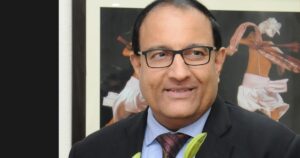
Renowned diplomat and foreign policy strategist Henry Kissinger has passed away at the age of 100. His death, announced by his consulting firm, Kissinger Associates, Inc., marks the end of a career that spanned more than half a century and left an indelible mark on U.S. foreign relations.
Kissinger’s impact on global politics was profound, as he played a pivotal role in shaping the diplomatic landscape during his tenure as secretary of state and national security adviser to Presidents Richard Nixon and Gerald Ford. He was the mastermind behind the behind-the-scenes efforts that established a framework for more manageable relations with the Soviet Union, China, and major Arab nations.
However, Kissinger’s legacy is not without controversy. He was associated with some of the most contentious foreign policy decisions in recent history, including advocating for intensive bombing campaigns in Southeast Asia and turning a blind eye to human rights abuses by governments perceived to be aligned with U.S. interests.
Born in Germany as Heinz, Kissinger fled Nazi persecution with his family in 1938, eventually finding refuge in the United States. His wartime experience as a U.S. Army soldier included the liberation of Jewish prisoners at a concentration camp in Ahlem, an event he later described as the single most shocking experience of his life.
Kissinger’s journey from a teenage refugee to a leading figure in American foreign policy exemplified the idea of the American dream. He worked in a factory during the day, attended school at night, and later served in the U.S. Army before pursuing higher education at Harvard.
Known for his distinctive gravelly voice and thick German accent, Kissinger’s public appearances often drew crowds, turning him into a global celebrity. His unique accent, a blend of his Franconian roots and American influences, reflected his dual identity as both an outsider and insider in both Germany and the United States.
One of Kissinger’s significant diplomatic achievements was orchestrating President Nixon’s historic visit to China in 1971. This groundbreaking move, challenging the status quo, aimed to exploit the rift between China and the Soviet Union, altering the dynamics of global power.
Throughout his life, Kissinger remained a sought-after voice on international affairs, and his influence persisted long after leaving direct government service. His perspective on foreign affairs, often characterized as realist, captivated audiences and policymakers alike.
Despite his acclaim, Kissinger faced questions about his approach to addressing the Holocaust in Germany. Critics wondered why he did not emphasize this dark chapter more in his dealings with the country. Growing up in Fürth, part of Bavaria, he carried traces of the Franconian dialect with him, creating a unique blend that contributed to his transnational and transcultural identity.
Kissinger’s passing marks the end of an era in U.S. foreign policy, leaving behind a complex legacy that continues to shape discussions on diplomacy, power, and the intersection of national interests. As the world reflects on his contributions, debates about the impact of his decisions and the ethical considerations surrounding his approach to global affairs are sure to persist.
Also read :
https://worldviewhub.com/tag/sustainable-urban-gardening/





